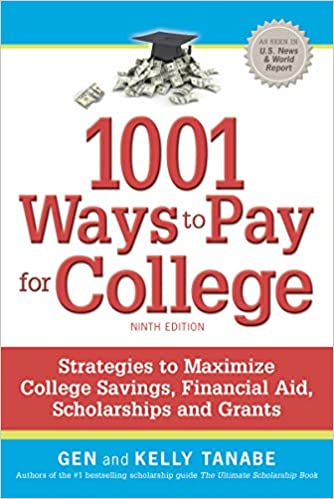8
Use those AP tests scores to gain advanced standing.
You may have wondered why you'd ever want to voluntarily subject yourself to more exams than you are required to take. The reason is that college prices are usually based on semesters. The typical student spends four years (or eight semesters) to get a bachelor's degree. You might want to consider that if you can cut the time it takes to graduate, you will save a bundle. One way to shorten the time you are in college is to enter already having earned some credits. If you have taken the Advanced Placement or International Baccalaureate exams and received passing scores, you may be eligible to start college as a sophomore instead of a freshman. The rules that govern advanced standing vary by college so contact your admissions office to get the details. If you are planning on taking an AP or IB test, visit the web sites of the test makers. For the AP tests visit http://www.collegeboard.com and for the International Baccalaureate tests visit http://www.ibo.org.
9
Use the College Level Examination Program to skip classes.
In addition to AP or IB courses that give you advanced standing, your college may also let you take CLEP exams to receive college credit. There are currently 2,900 colleges that give credit or advanced standing to students who pass CLEP exams.
Other exams that let you gain college credits include the following:
- The DANTES Subject Standardized Tests (DSST)
- Excelsior College Examinations
- Graduate Record Exam (While the GRE is usually for graduate school admission, some colleges allow undergraduates to earn credits with GRE scores.)
- Job Ready Assessment tests
Finally, you may also be able to get "credit by evaluation", which is when a college looks at any education or training that you have received outside of a traditional institution and determines if it is equal to a course offered by the college. However you do it, if you can rack up some credits before you get to college, you can save a lot of tuition by graduating early.
10
Pay for tuition monthly instead of in one lump sum.
Depending on your cash flow, it might be easier to pay for tuition in small amounts each month instead of in one big lump sum at the start of each semester. Some schools allow you to spread your payments over the year instead of paying once or twice a year. Check with the college you plan to attend to see if they offer this type of payment. If your school participates in the TuitionPay monthly payment program from Academic Management Services, you can pay $55 to have your tuition divided into payments, with no interest. Currently more than 1,500 schools participate in this plan. To see if your school participates in TuitionPay, visit http://www.tuitionpay.com.
Without increasing the money you have available for college, there are numerous things you can do to lower the cost of your education. Concentrate on putting a few of these cost-cutting strategies into play and see how the savings add up.
It's also important to know how to avoid the number one cause of spending more than you need to … and that is … switching majors. Whenever you change your degree plan, you run the risk of having to make up required courses. This takes time and can add an extra semester or even a year. So start thinking about your major even before you go to college. While you don't want to lock yourself into something too early, you do want to explore your options and then declare a major in your second year at the latest.
And, if you want to really get creative, you could even barter for your tuition with livestock! Yes, cash cows really do exist! For the past five years, Lindenwood University in St. Charles, Missouri, has allowed students to substitute livestock for cash when paying for tuition. Is your school willing to accept an alternative form of payment? The only way to find out is to ask. The bottom line is that you can get a great education without going broke.



